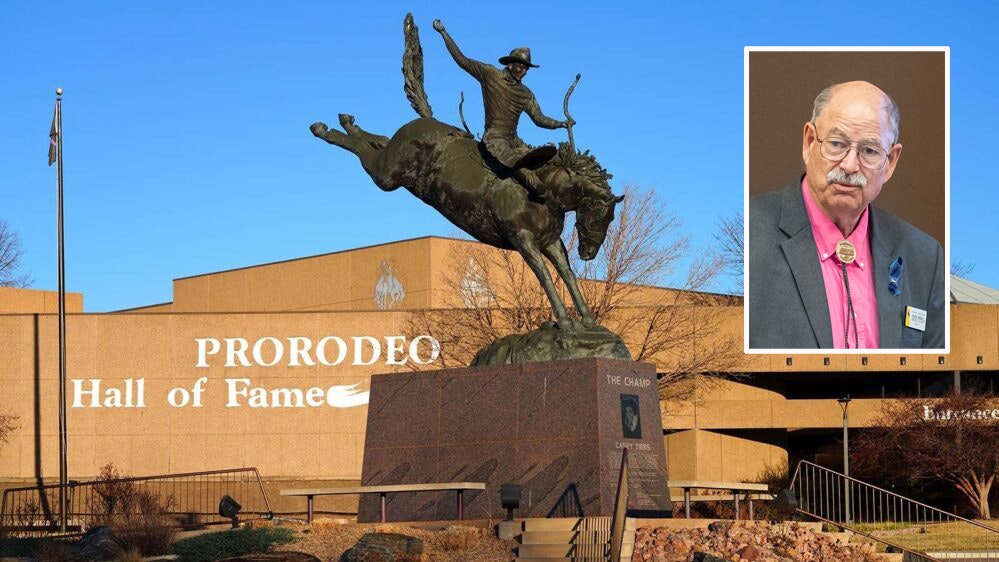Pivoting a “Roadhouse Bill” away from its original intent to help manage unruly bar or church patrons and toward possible conflicts between hunters and landowners likely killed the measure, some legislative observers says.
That’s been a “consistent problem” with trespass bills as the lines sometimes blur between criminal trespass and hunting trespass, which are separate offences under Wyoming law, Jess Johnson, a lobbyist for the Wyoming Wildlife Federation, told Cowboy State Daily on Monday.
“I think there is a fundamental misunderstanding between Chapter 6 (criminal trespass under Wyoming code) and Chapter 23,” she said.
Bill Died In Committee
House Bill 126, which would have allowed for using “reasonable” physical force to remove trespassers initially centered on concerns over such things as people becoming unruly in bars or churches or getting loud and aggressive in schools.
It initially did well, passing the Wyoming House by a wide margin (57-5) earlier this month and earned the nickname “Roadhouse Bill” in reference to the 1989 Patrick Swayze movie about a top-of-the-line bar bouncer.
But when it came to the Senate Travel, Recreation, Wildlife and Cultural Resources Committee last week, it was rejected after the discussion became mostly about trespass tensions between hunters and ranchers.
Roughing Up Hunters?
The bill originally was prompted by a discussion with a pastor who questioned whether the justification for physically removing an unruly person from a church was specifically allowed for in Wyoming law, said the bill’s main sponsor, Rep. Barry Crago, R-Buffalo.
Crago told the committee that such laying on of hands isn’t yet clearly codified.
However, similar measures have helped landowners in other states, said Jim Magagna, executive vice president of the Wyoming Stockgrowers Association.
In many cases, particularly if somebody is ripping across agricultural land on an ATV, “the damage is already done” by the time local law enforcement can arrive, he said.
Even so, the bill could have ratcheted up existing tension between hunters and ranchers, which could have ugly consequences, said Josh Metten, spokesman for the Theodore Roosevelt Conservation Partnership, during testimony.
“This is an issue that should be addressed by trained professionals, law enforcement,” he said. “We should not be encouraging people to take things into their own hands, especially when we’re talking about being out in the field with people that might be armed.
“Our members are concerned about safe, legal access to public land for themselves for their friends and their family.”
Bill Game Warden Trespass Authority Still In Play
Johnson agreed that tensions between hunters and landowners in some cases runs “marrow deep” in Wyoming, and that needs to be addressed. However, blurring the line between criminal trespass from a building or business and hunting trespass might not have been the best approach.
Meanwhile, a trespass bill that would broaden the authority of Wyoming Game and Fish Department Wardens is still in play.
Senate File 56 would give game wardens the authority to investigate and possibly write tickets in trespass cases that now would fall only under criminal trespass.
It passed the Senate, was introduced to the House and referred Friday to the House Judiciary Committee.
Under current statute, game wardens may investigate only clear cases of hunting trespass. If criminal trespass is suspected, a sheriff’s deputy must be called in.
Proponents of SF 56 have said that it can sometimes take deputies hours to arrive. In some cases, that has left a game warden, a hunter suspected of trespassing and the land owner all cooling their feet while waiting for some sort of resolution.p
The bill would make it possible for game wardens to intervene immediately, if there was reasonable suspicion that a person had hiked, driven or ridden a horse across private property with the intent of getting to adjacent public land to hunt, fish, trap or look for shed antlers.





